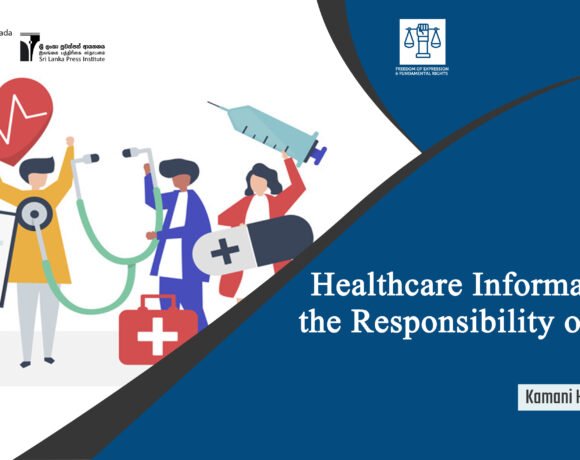
Law and Order
Wishwajith Kodikara
Many Sri Lankans relate to the month of May as the Vesak season because the full moon day of the month marks the birth, enlightenment, and the parinirvana of Lord Buddha. For Buddhists, it is a month of mindfulness and merit, including the giving of alms. Apart from that, as a month, May also coincides with the heavy rains brought on by the southwestern monsoon.
Extracted and summarised from several news sources, the following incidents were also reported from the month of May:
News Number 01: On 13 May, the media reported the death of Melan Mabula, a.k.a Uru Juva, a suspect of murder and other crimes. He was in remand custody for several years and was granted bail on 10 May. However, as he was still under suspicion for many other crimes a special police team from Nawagamuwa police station arrested him later on the same day. Police say that in order to expose hidden arms and ammunition Mabula took a police team to an abandoned house in Wandurammulla. Here, the suspect had tried to throw a grenade at the police team and succumbed to gunshot injuries when police fired for self-security.
News No 02: The lead news of some media on 14 May was that another underworld figure known as Tharaka of Kosgoda had died of gunshot injuries. Dharmakeerthi Tharaka Perera Wijesekara a.k.a Kosgoda Tharaka (34) was handed over by the remand prison to the Criminal Investigation Division of Peliyagoda. Police say that he led a police team to a detached house in Walawwawatta in Rendapola, Mirigama, to expose hidden arms and ammunition. Police further claimed that the suspect had tried to grab a weapon from a police officer and died by gunshot injuries when police fired to defend themselves.
Earlier, Tharaka’s lawyer had focused the attention of the Inspector General of Police to the threats to his client’s life via email.
News No. 03: A third news item related to a petition by the mother of a convicted prisoner which alluded to a conspiracy to assassinate her son. The petitioner was the mother of Gampola Vidanage Samantha Kumara a.k.a Wele Suda, a drug racketeer, and a gang leader. R.G. Malani, the suspect’s mother, urged the Court of Appeal to mediate and prevent the alleged attempt on her son’s life. Hearing the petition, the Court of Appeal issued an injunction on 17 May to the Superintendent of Boossa Prison, preventing the suspect from being taken away until 24 May.
News No. 04: A lead news story of the day reported that the Attorney General had agreed to assure the security of Janith Madusanka a.k.a. Podi Lassy. When the Court of Appeal considered a petition related to the safety of the remand prisoner on 20 May, the Attorney General agreed to inform the Inspector General of Police to assure his security.
The aim of this article is not to analyse these media reports, but to focus on the challenge posed by the situations reported in the quoted articles on the rule of law and peace and order of the country. There can be no argument against the social damage caused by drug racketeers and underworld criminals, and the need for the effective implementation of the law against them. According to civilized reasoning, drug traffickers and criminals must be sentenced legally, and not through extra-legal measures. In such a context, the orders mentioned above as issued by the court to the police (to ensure the safety of suspects) come across as ironic. As an implication of the rule of law, they paint a bleak picture.
Issuing a statement, the Bar Association of Sri Lanka (BASL) urged the government to guarantee the security of the persons who were in their custody because the above-described incidents could be interpreted as extra-judicial killings. A country’s law and order and peace are inter-connected and inter-dependent cogwheels. Rule of law must be equal to all and equanimity – as illustrated in the belief that justice prevails all – must be demonstrated in practice, as well.
A decayed system of law cannot deliver peace. It is one of the prime principles of reconciliation. The implications of the legal situation become even graver when these incidents are examined in the context of the UN Human Rights Council’s war crimes charges in post-war Sri Lanka. The misplacement of the rule of law has the potential to undermine Sri Lanka’s image as a democratic state before the international community.
சட்டத்தின் ஆட்சி அனைவருக்கும் சமமாக உள்ளதா?








